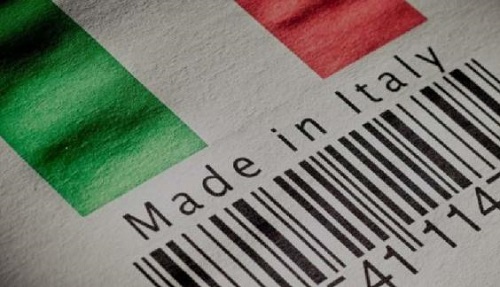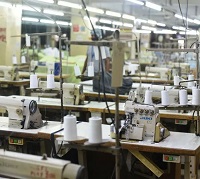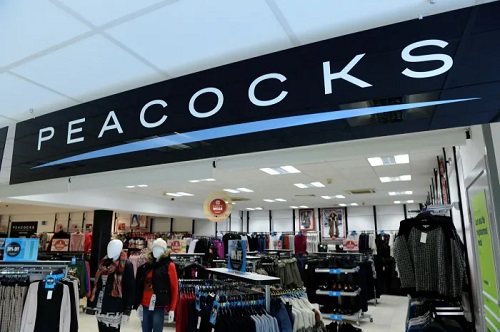FW
According to ICRA, the recent decision of Cabinet Committee on Economic Affairs (CCEA) approving an increase in the minimum support prices (MSPs) for kharif crops (including cotton) for the Cotton Year 2020-21 is likely to be unfavorable for the domestic spinning sector.
The CCEA recently hiked the MSP for the medium-staple variety by Rs 260 per quintal to Rs 5,515 per quintal, while that of long-staple variety by Rs 275/quintal to Rs 5,825/quintal, translating into an increase of 5 per cent over the level fixed for CYi2020.
According to Jayanta Roy, senior VP and group head, Icra Ratings, this move may heighten challenges for the domestic spinning companies, as this comes at a time when the COVID-19 pandemic has resulted in severe demand-side pressures in the international textile markets.
Though increased MSP, timely onset of monsoon and expectation of normal monsoons augur well for cotton sowing in India, cotton crop remains highly vulnerable to pest attacks, and output/yield expectations remain contingent on these. In this context, the locust swarm which has hit several parts of western and northern India including Rajasthan, pose a looming threat for the crops as these insects feed on a large variety of crops.
Bangladesh high commissioner to the UK Saida Muna Tasneem has urged the UK to create a global supply chain sustainability fund for post-COVID-19 socio-economic recovery of countries victimized by the British retailers including Bangladesh. The rise in number of unethical cancellations and non-payment for manufactured apparels by UK retailers is victimizing the Bangladesh RMG industry its 4.5 million workers.
Tasneem also urged the UK to ensure equitable and affordable access to vaccines and therapeutics manufactured by the UK and other developed countries for the most vulnerable countries including LDCs. She was addressing a ‘High Commissioners’ Virtual Conference’ organized by the UK FCO (Foreign and Commonwealth Office) Minister of State for South Asia, Commonwealth, the UN and the DFID, Lord Ahmad of Wimbledon this week. Tasneem was one of the eight speakers at the conference participated by more than 48 high commissioners of the Commonwealth, UK’s Joint Head of International Engagement of the HMG Coronavirus Taskforce Alastair King Smith and UK FCO High Officials including the Commonwealth Envoy, Philip Parham.
She also briefed the conference about the innovative and unprecedented initiatives undertaken by Bangladesh premier including a $11.50 billion COVID-19-response social safety emergency aid and incentive package for protecting livelihoods of the most vulnerable faction of the society.
British FCO Minister Lord Ahmad, who chaired the virtual conference, assured Tasneem of UK’s continued engagement and support to Bangladesh’s post-COVID-19 socio-economic and sustainable development recovery.
As mountains of apparel stock has piled up stores, distribution centers, warehouses and even shipping containers due to the COVID-19 lockdowns, retailers across the world are adopting innovative ways to get rid of it. Apparel chains including British high-street retailer Next and German sportswear brand Adidas have stashed away unsold basics, aiming to offer them next year instead. These retailers hope that easing lockdown measures will see shoppers return to stores, eager to unleash pent-up demand.
Many stores are likely to pursue a combination of holding sales as well as selling stock to off-price retailers. The mix will depend on consumer appetite, how much merchandise stores have to shift and how fast they must free up space for new collections. Some retailers are also likely to move their merchandise to online re-sale marketplaces that take a commission on sales, although that option is largely only open for high-end brands.
California-based luxury re-sale marketplace Tradesy opened a new business unit in April to deal with the jump in brands looking to sell stock they were stuck with after department stores canceled wholesale orders.
Some of the companies are also plotting a quick profit using re-sale websites. For instance, events company Luxury Experience & Co, plans to snap up merchandise at a discount, to then resell it at a higher price online at a site such as California-based Poshmark, which also makes money by taking a commission on sales.
The Bangladesh government has adopted a two-pronged strategy to save its devastated textile industry. The first is renegotiation of trade deals and second is petitioning international rights groups like International Labor Organization, Human Rights Watch, and the Worker Rights Consortium, and European Union trade committee.
The Coronavirus lockdown has completely devastated the Bangladesh textile industry as many European companies have cancelled orders. As per a report by Nikkei Asian Review, Japan’s premier financial newspaper, UK’s Edinburgh Woolen Mills Group, whose key brands include Peacocks, Jaeger, Bonmarche, and Austin Reed, has cancelled orders worth more than 30 million from nearly three dozen Bangladeshi factories. BGMEA has threatened to blacklist the group.
As orders from European countries like the United Kingdom, Germany, Italy, Spain- the major importers of Bangladeshi garments, get cancelled, more than 1,000 factories have been shut down and 3 million workers are out job, with their families facing poverty.
 Like many other businesses, luxury fashion industry in Italy also came to a halt as factories across the country shut down due to lockdown from mid-March. Now, many of these factories have restarted with limited capacity in order to comply with social distancing guidelines of the government.
Like many other businesses, luxury fashion industry in Italy also came to a halt as factories across the country shut down due to lockdown from mid-March. Now, many of these factories have restarted with limited capacity in order to comply with social distancing guidelines of the government.
According to McKinsey, Italy holds over 40 per cent share of world’s luxury goods production which makes the ‘Made in Italy’ label, the centre of the luxury supply chain. However, this production system relies on a complex and fragile network of independent businesses which makes it extremely vulnerable to calamities like the present Coronavirus pandemic.
Also, these factories lack the deep pockets of the luxury brands they work with. They are also not in a position to invest in new technologies or experiment with e-commerce. Hence, some of them may either be shut down permanently or be consolidated and acquired by investors or larger luxury brands like LVMH and Kering.
Tapping available resources
In order to survive, these independent factories are tapping all available resources. Yet, the upcoming season might be tough for them, opines Stefano Canali, President and Chief Executive of family-owned menswear brand Canali. Committed to paying his factories and suppliers, Canali introduced some cost-saving measures like digital tools to create virtual showrooms and accelerate sample and prototype productions for future seasons.
Chief Executive of family-owned menswear brand Canali. Committed to paying his factories and suppliers, Canali introduced some cost-saving measures like digital tools to create virtual showrooms and accelerate sample and prototype productions for future seasons.
Likewise, Boston-based direct-to-consumer footwear brand M Gemi cut-down production time and costs by using 3D technology and graphic design to render prototypes and adjust samples. However, many industry leaders like Marco Zanini, Milan-based independent designer and former creative director of Schiaparelli, believe the use of advanced technologies may render many smaller factories obsolete. More than old technologies, the hectic pace of fashion calendar is a bigger threat to the Italian fashion industry.
A renaissance of fashion
Many also believe that despite these challenges, the fashion industry in Italy may be witness a growing demand for different kind of fashion in future. As brands may focus on sustainable and ethically sourced materials and products in smaller quantities, these small and independent factories may grow in demand.
As consumers become more considerate with their luxury purchases, these manufacturers will be in an advantageous position marking their return to the luxury trend that followed the 2008 recession. As a recent McKinsey & Co survey of sourcing executives affirms, 60 per cent respondents expect their manufacturing clusters to expand in Central America and Eastern Europe to be closer to consumers in Western Europe and the US. Thus it will be a renaissance for these factories as orders will start pouring in and machines start. It will be a renaissance of sorts for these factories as orders will start pouring in again and Italy’s supply chain will stay intact in coming months.
 Just how vast is the impact of COVID-19 on the global fashion industry can be gauged from the fact that McKinsey does not expect one third of global fashion players, such as brands and department stores, to survive the crisis. The impact is being felt all along the $2.5 trillion industry’s complex supply chains as instead of placing orders for their Spring ’21 collections, retailers are cancelling orders and deferring payments for orders already completed. For example UK fashion retailer Peacocks recently refused to pay for over 43,000 pairs of jeans shipped to the brand by Bangladeshi manufacturer Denim Expert.
Just how vast is the impact of COVID-19 on the global fashion industry can be gauged from the fact that McKinsey does not expect one third of global fashion players, such as brands and department stores, to survive the crisis. The impact is being felt all along the $2.5 trillion industry’s complex supply chains as instead of placing orders for their Spring ’21 collections, retailers are cancelling orders and deferring payments for orders already completed. For example UK fashion retailer Peacocks recently refused to pay for over 43,000 pairs of jeans shipped to the brand by Bangladeshi manufacturer Denim Expert.
Major shake outs in Southeast Asian countries
Along with Vietnam and Sri Lanka, Bangladesh has become the global production hub for much of the world’s clothing, accessories and footwear retailers who aimed to lower their production costs. In Bangladesh, garment industry makes up the lion’s share of the country’s export revenues, and employs more than four million people, the majority of whom are women. However, since the outbreak of the COVID-19 pandemic, the industry has laid off over half of its workforce in the country. Bangladeshi manufacturers have also lost out on more than $3 billion in payments for T-shirts, shoes and designer dresses already produced or sourced, reveals BGMEA.
retailers who aimed to lower their production costs. In Bangladesh, garment industry makes up the lion’s share of the country’s export revenues, and employs more than four million people, the majority of whom are women. However, since the outbreak of the COVID-19 pandemic, the industry has laid off over half of its workforce in the country. Bangladeshi manufacturers have also lost out on more than $3 billion in payments for T-shirts, shoes and designer dresses already produced or sourced, reveals BGMEA.
Similarly, garment companies in Southeast Asia’s fastest-growing economy Vietnam, have started disappearing. The Vietnam Textile & Apparel Association estimates if the current lockdown lasts until June, Vietnamese textile and garment companies could lose more than $500 million in revenues. The country has already laid off about 600,000 of total 2.8 million workers in the sector.
In India, order cancellations shaved off almost a third off its benchmark cotton prices since the beginning of the year. Though it has rebounded slightly recently, the International Cotton Advisory Committee, forecasts 15-year low decline in the average cotton price for the upcoming 2020-21.
Commitment phobia grips retailers
Last year, McKinsey labeled the global fashion industry as one the rare economic success stories of the past decade. However, this success was a result of extreme consolidation by some of the world’s biggest retailers. In 2019, around 97 per cent profits in the fashion industry were generated by just 20 companies, including Inditex, the world’s largest clothing retailer, and sportswear retailer Nike.
Of these, H&M was one of the first global retailers to pay for all ordered goods, including those still in production. On the other hand, some retailers have been accused of acting too slowly. Primark, the UK high street retailer promised to pay garment workers in early April. However, wages account for only about 15 per cent of the £256 million (S$446.9 million) worth of orders that the company cancelled with Bangladeshi manufacturers.
To tide over the crisis, retailers are trying shorter lead times and boosting flexibility in the face of demand shocks. However, Paul Lister, Head of Ethical Trade, Primark, does not expect the pandemic to have an impact on where clothes are manufactured. Unless retailers pay for clothes already in production, manufacturers will have no business to save.
With the fashion industry being one of the hardest hit sectors in Africa due to the coronavirus pandemic, experts have urged investors in the sector to embrace innovation in order to remain afoot.
In a webinar organized by the African Development Bank, experts and sector players said African designers should develop their unique business models and take advantage of online tools to strengthen businesses. In a report published in April, Boston Consulting Group said business decision makers and sustainability professionals in the fashion industry should protect critical assets to survive the economic crisis.
Additionally, fashion companies must safeguard workers, capital, value chain partnerships, channels, and the trust as well as support of their customers. The report said there is need to integrate sustainability throughout business recovery strategies noting that sustainability will be an imperative for strong companies after the crisis.
The African fashion industry has been evolving significantly over the recent past, with many designers from across the continent taking part in the international arena to showcase their designs and creativity.
African Fashion Week has provided a key platform for designers to showcase what the continent has to offer to the world. According to Euromonitor, a global market research firm, the apparel and footwear market in Sub-Saharan Africa is worth $31 billion.
However, like many other sectors, Africa's fashion industry has been hit hard by the ongoing coronavirus pandemic that has infected 164,985 and killed 4,627 people across the continent by June 4.
The lockdown measures imposed by different countries as well as the social distancing, have led to cancellation and postponement of social events such as weddings, parties and cultural events, which are key areas that bring huge business to the sector.
Many designers have been left in distress as customers who had large orders cancelled them. This is despite the fact that the designers had already bought the materials.
In order to restore clothing orders, suspended or canceled by many European brands and retailers after the COVID 19 Pandemic, Bangladesh recently sought help from the European Parliament. The cancelation or suspension of work orders has disrupted the sector and forced many owners to lay off workers, said Dr Jafar Uddin, Secretary of Commerce in a letter to Bernd Lange, Member of the European Parliament and Chair of the International Trade Committee.
In recent weeks, several thousand vulnerable employees lost their jobs, plunging their lives and livelihoods into deep uncertainty. He urged Lange to take the steps to save the RMG employees’ lives and livelihoods, most of whom are women. BGMEA noted that some four million employees currently working in
Bangladeshi garment factories are the most vulnerable, as some 1,150 apparel factories registered order cancelation or suspension of goods worth $3.18 billion until April 29. BKMEA also announced that out of 833, its 523 members registered a $1.78 billion suspension or cancelation of an order.
Pontetorto’s spring/summer 2024 collection is a tribute to nature and its harmony.
Structures are taken to extremes, emphasizing weaves and opening into micro patterns and tonal effects. Textures are delicate but firm at the same time conferring a distinctive character. Fabrics have aspects ranging from clean to mottled, with sustained and compact weights side by side with light and fluid ones, always enhanced by the brightness of man-made fibers that contrasts with the opacity and gentleness of natural fibers.
The color palette ranges from natural, white and caramel, to sand and cloud grey, from sorbets, such as melon and lime, with a delicate intensity, side by side with lavender, to the strength of sunflower to the serenity of light blues and midnight blues to end in black/white declined in a reassuring summer tweed.
On the jersey fabric side, hemp rediscovers elegance, interwoven with linen for interlock and roma stitches. More textural weaves bring out the true soul of linen in écru dyes, delicate and precious. Compact weaves are made using an innovative technique that combines premium nylon with natural yarn for fashion and function of pure excellence.
The theme developed on synthetic fabrics includes the range of jacquard and ultralight nylon items, made with exaggerated finesse.
Pitti Immagine has canceled all the physical trade shows slated for September, including Pitti Uomo, which was expected to run September 02 to 04, 2020. The Florence-based fair organizer will now focus on implementing and promoting the Pitti Connect digital platform, which will be available to exhibitors and industry operators starting in July.
In April the fair organizer decided to reschedule the 98th edition of the Pitti Uomo — originally slated for June 16 to 19 — following Camera della Moda Italiana’s decision to postpone the upcoming Milan Men’s Fashion Week to September.
At the time, dates for the other shows operated by Pitti Immagine were also changed, including the children’s wear-focused Pitti Bimbo fair, that was expected to run Sept. 9 to 10. Other events now forgone include Pitti Filati, whose new dates had yet to be announced; Pitti Fragranze and Super, meant to run Sept. 11 to 13 and Sept. 24 to 27, respectively.
Supported by the Italian Trade Agency ICE, Pitti Connect marks the evolution of Pitti Immagine’s existing digital platform. The advanced network and market tool intends to promote the shows and aid exhibitors to increase their visibility, connect them with buyers as well as support them in managing orders and hosting digital live presentations.












